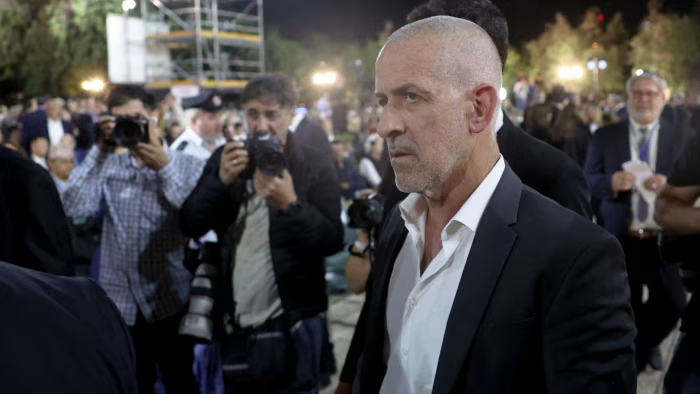Shin Bet Chief Ronen Bar to Step Down Amid Clashes with Netanyahu

Ronen Bar, the head of Israel’s domestic intelligence agency, Shin Bet, has announced he will resign on June 15, following a high-profile and contentious standoff with Prime Minister Benjamin Netanyahu.
The decision comes after weeks of public dispute that pushed Israel toward a constitutional crisis, raising fundamental questions about the balance of power and the independence of state institutions.
Bar’s departure marks the latest fallout from the failures surrounding the October 7, 2023, Hamas-led attacks, which left deep scars on Israel’s security establishment. In a speech during a memorial ceremony for Shin Bet’s fallen operatives, Bar stated that he had decided to step down “as the person who stood at the head of the organisation on October 7,” adding that all public servants should “bow our heads in humility” in the face of such a national tragedy.
While Bar had previously indicated an intention to resign over operational failures, tensions escalated last month when Netanyahu’s government attempted to dismiss him outright. The move triggered legal challenges and a temporary injunction from Israel’s Supreme Court, which sought to determine whether the prime minister possessed the authority to fire the intelligence chief amid ongoing investigations.
Bar, in a sworn affidavit to the court, accused Netanyahu of pressuring him to show personal loyalty in the event of a constitutional standoff and of seeking to use Shin Bet to surveil anti-government demonstrators and halt his corruption trial on national security grounds. Netanyahu denied the allegations, calling them false and inconsistent, and argued that Bar bore responsibility for the intelligence breakdown leading to the October 7 attacks.
The friction between the two men has become emblematic of broader divisions in Israeli society and governance. Civil society groups and opposition figures have criticized Netanyahu’s handling of the crisis and alleged that Bar’s dismissal was politically motivated. Bar, in turn, framed his resignation as a step toward protecting institutional independence and democratic principles.
“Clarification is needed regarding the institutional protections that will allow any future director to do his job independently and free from pressure,” he said.
Bar’s exit concludes a series of high-level departures from Israel’s security establishment in the wake of the October 7 attack. Former Defense Minister Yoav Gallant and IDF Chief Herzi Halevi also left their posts under pressure from the Netanyahu administration. Critics argue that the prime minister has attempted to deflect blame onto security officials while avoiding accountability himself and blocking efforts to launch an independent inquiry into the attack.
The political battle has reignited long-standing tensions over Netanyahu’s leadership, particularly among those who believe the government has prioritized its political survival over national unity and institutional integrity. Recent public statements from retired security officials warn of an erosion of democratic norms, echoing widespread calls within Israel for new elections and a shift in national direction.
As the Supreme Court continues to weigh the legality of Netanyahu’s actions, Bar emphasized that his case is not about personal vindication but about setting a precedent for future leaders.
“This is about ensuring the independence of the next Shin Bet chief and defending the foundations of our democracy,” he said.
The Financial Times, BBC, and the Guardian contributed to this report.









The latest news in your social feeds
Subscribe to our social media platforms to stay tuned